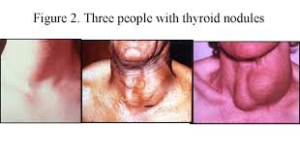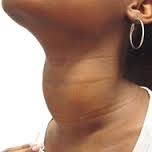 Hypothyroidism
Hypothyroidism
This occurs when your thyroid produces too little thyroid hormone, a condition that is often linked to iodine deficiency.
Dr. David Brownstein, a board-certified holistic practitioner who has been working with iodine for the last two decades, claims that over 95 percent of the patients in his clinic are iodine-deficient.
In addition, 10 percent of the general population in the United States, and 20 percent of women over age 60, have subclinical hypothyroidism,2 a condition where you have no obvious symptoms and only slightly abnormal lab tests.
However, only a marginal percentage of these people are being treated. The reason behind this is the misinterpretation and misunderstanding of lab tests, particularly TSH (thyroid stimulating hormone). Most physicians believe that if your TSH value is within the “normal” range, your thyroid is fine. But as I always say, the devil is in the details. More and more physicians are now discovering that the TSH value is grossly unreliable for diagnosing hypothyroidism.
How do you know if you have Hypothyroidism:
Identifying hypothyroidism and its cause is tricky business. Many of the symptoms of hypothyroidism are vague and overlap with other disorders. Physicians often miss a thyroid problem since they rely on just a few traditional tests, leaving other clues undetected.
The most sensitive way to find out is to listen to your body. People with a sluggish thyroid usually experience:
- Lethargy – Fatigue and lack of energy are typical signs of thyroid dysfunction. Depression has also been linked to the condition. If you’ve been diagnosed with depression, make it a point that your physician checks your thyroid levels.
It’s essential to note that not all tiredness or lack of energy can be blamed on a dysfunctional thyroid gland. Thyroid-related fatigue begins to appear when you cannot sustain energy long enough, especially when compared to a past level of fitness or ability. If your thyroid foundation is weak, sustaining energy output is going to be a challenge. You will notice you just don’t seem to have the energy to do the things like you used to.
Some of the obvious signs of thyroid fatigue include:
- Feeling like you don’t have the energy to exercise, and typically not exercising on a consistent basis
- A heavy or tired head, especially in the afternoon; your head is a very sensitive indicator of thyroid hormone status
- Falling asleep as soon as you sit down when you don’t have anything to do
- Weight gain– Easy weight gain or difficulty losing weight, despite an aggressive exercise program and watchful eating, is another indicator.
- Rough and scaly skin and/or dry, coarse, and tangled hair– If you have perpetually dry skin that doesn’t respond well to moisturizing lotions or creams, consider hypothyroidism as a factor.
- Hair loss– Women especially would want to pay attention to their thyroid when unexplained hair loss occurs. Fortunately, if your hair loss is due to low thyroid function, your hair will come back quickly with proper thyroid treatment.
- Sensitivity to cold– Feeling cold all the time is also a sign of low thyroid function. Hypothyroid people are slow to warm up, even in a sauna, and don’t sweat with mild exercise.
- Low basal temperature – Another telltale sign of hypothyroidism is a low basal body temperature (BBT), less than 97.6 degrees Fahrenheit averaged over a minimum of three days. It is best to get a BBT thermometer to assess this.
Any of these symptoms can be suggestive of an underactive thyroid. The more of these symptoms you have, the higher the likelihood that you have hypothyroidism. Furthermore, if you have someone in your family with any of these conditions, your risks of thyroid problems become higher.



